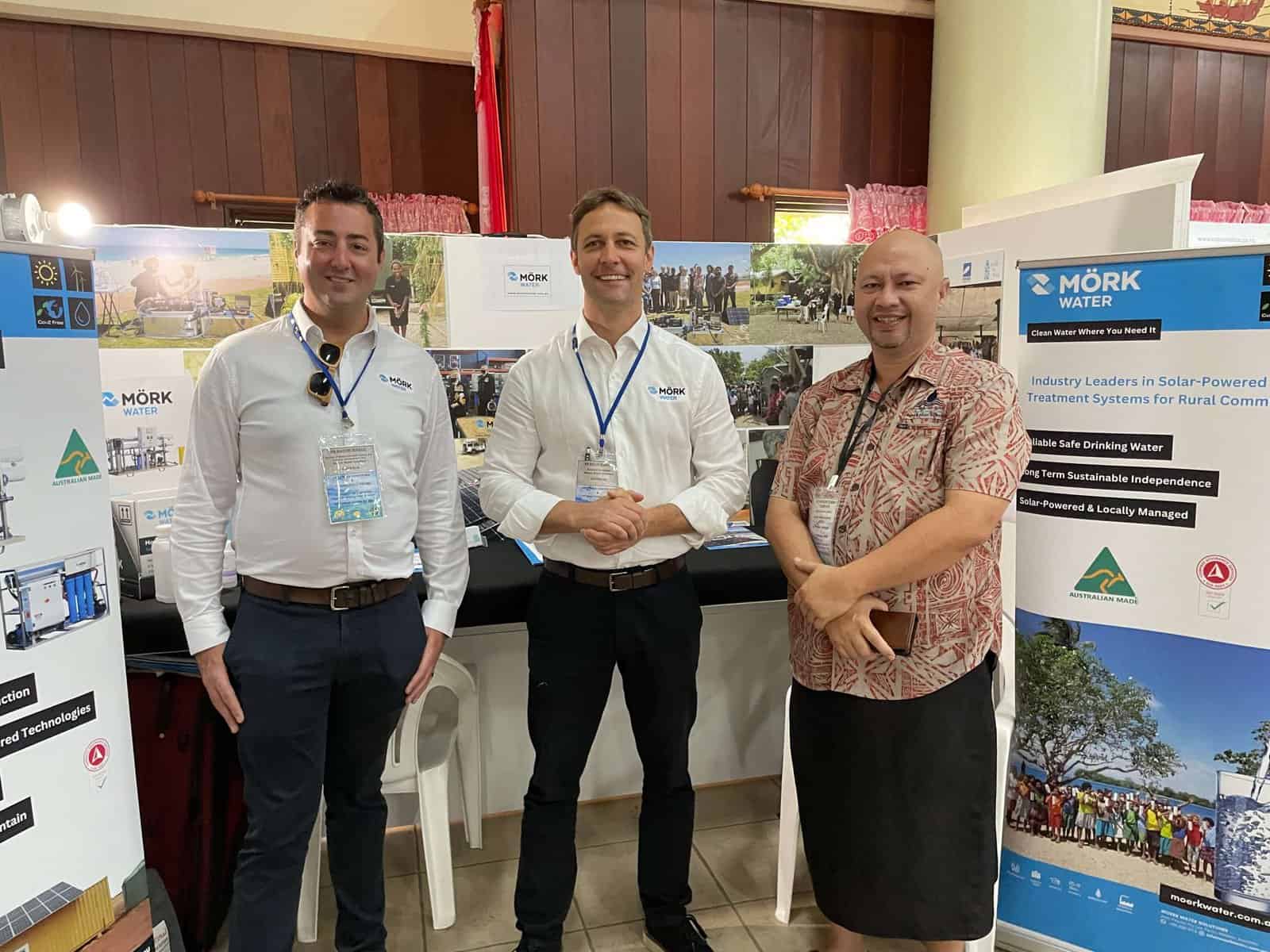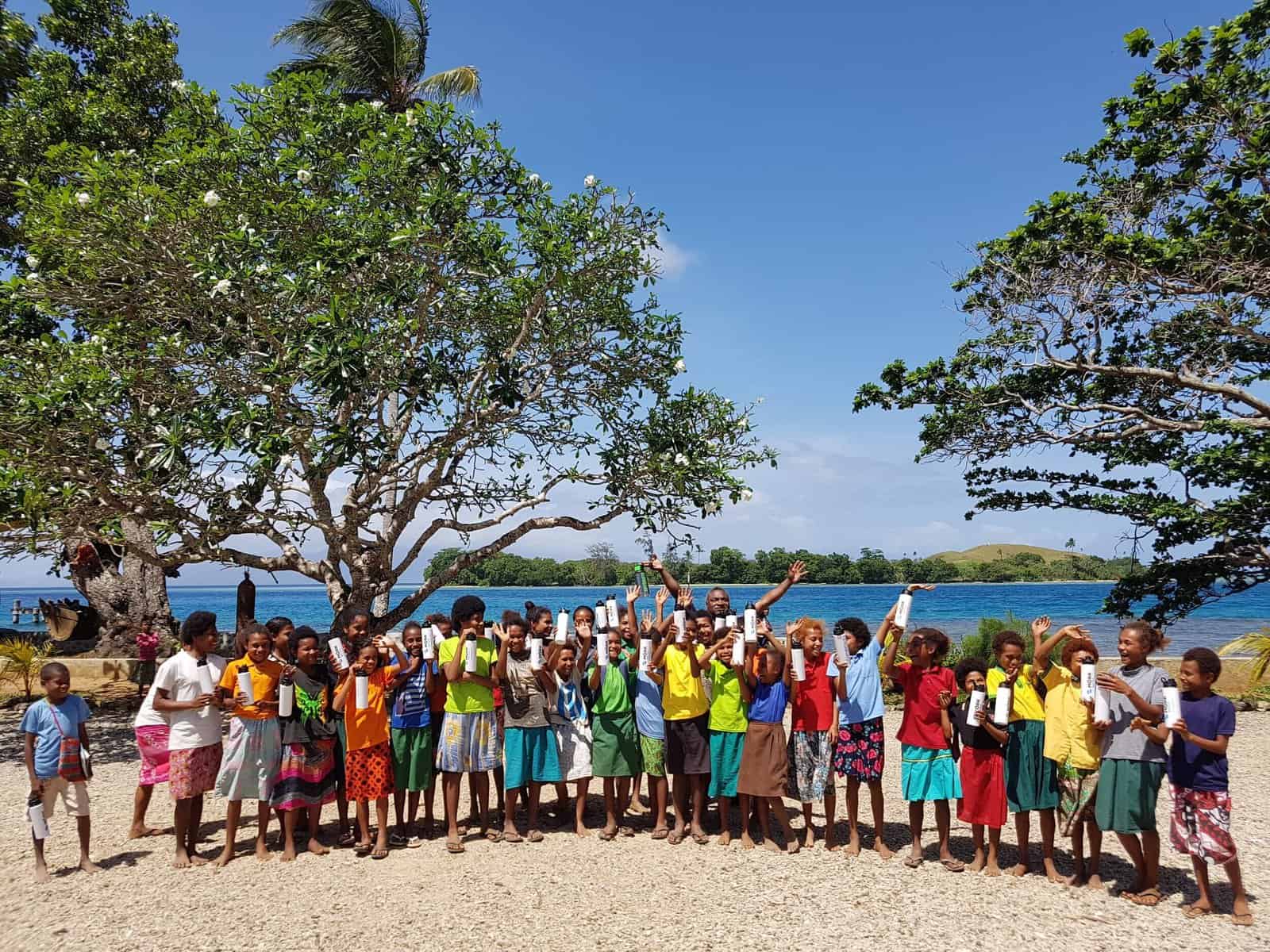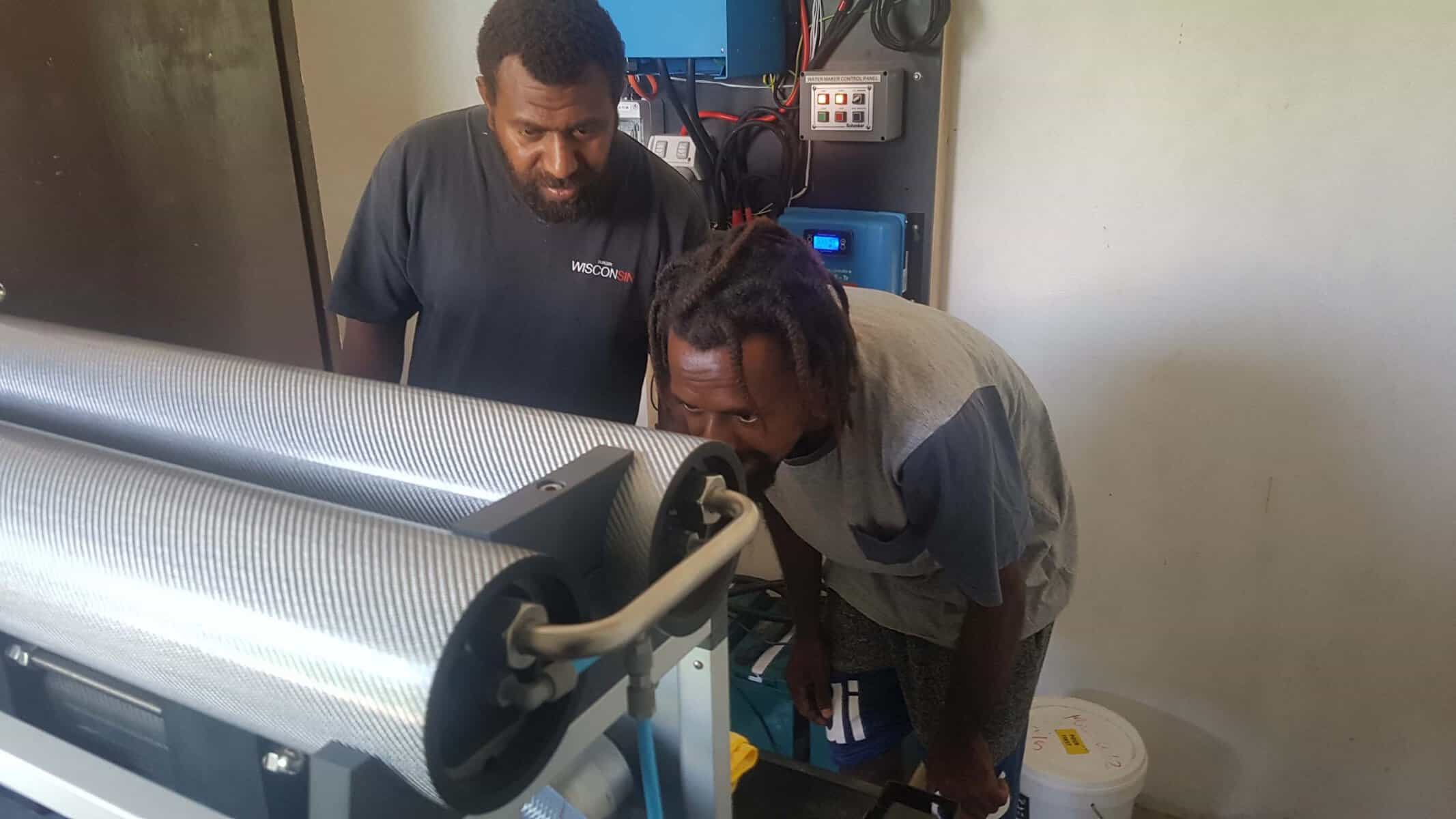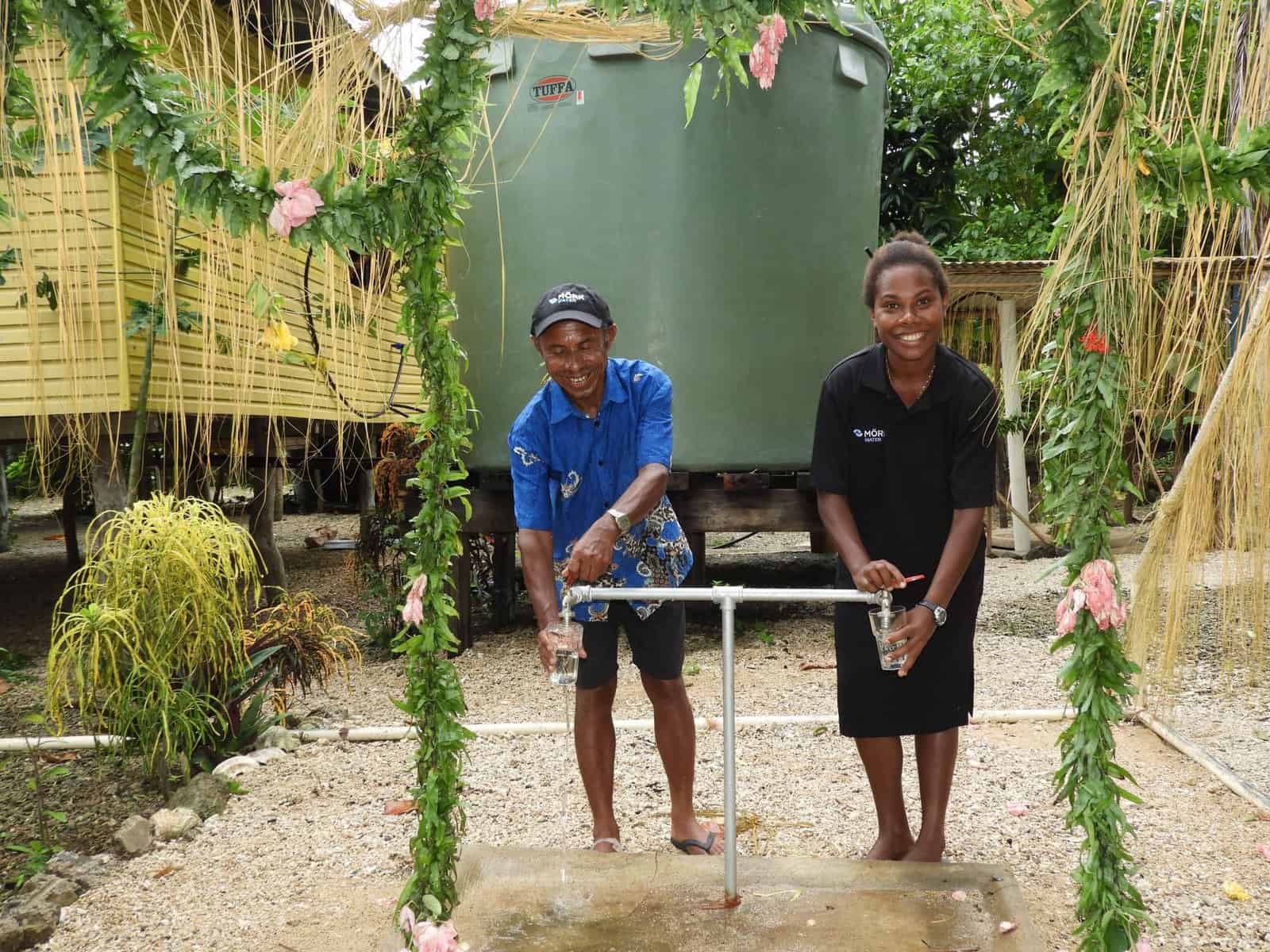Pacific Island Countries vary in size, elevation and the availability of water resources. Large volcanic islands like Papua New Guinea, Fiji and Solomons Islands have abundant surface and groundwater resources while coral atolls and Pacific Island Countries such as the Republic of the Marshall Islands, Kiribati and Nauru have limited groundwater and rely on rainwater. Providing reliable, safe water by treating these water sources is being complicated due to the lack of sufficient storage capacity, the contamination of surface and groundwater sources, failing water treatment infrastructure and increasing populations in the region. Additionally, water security is at risk in the Pacific region due to the ongoing effects of climate change. Increasing cyclonic activity damages distribution networks, rainfall patterns are shifting leading to an increase in drought periods and rising sea levels are causing saline intrusion into groundwater sources.
Seawater desalination is a mature technology that has been used since the 1970s to produce water for municipal drinking water supply. The technology is well understood, has been installed on every continent on the planet and is supported by extensive supply chains. Traditionally, seawater desalination has failed in Pacific Island Countries for a variety of reasons:
- Water treatment systems are poorly designed for local conditions
This includes a lack of availability of spare parts meaning the water treatment system will be down until the part can be flown in. It also includes a lack of local expertise in diagnosing any issues with the water treatment system and a lack of service networks which can repair the water treatment system, again relying on outside experts physically travelling to the Pacific Island Country.
- There is a lack of community involvement
This includes a lack of consultation with landowners leading to issues during the lifetime of the project. Additionally if the community is not consulted about the water treatment system and is not responsible for its upkeep, then the water treatment unit is frequently left in a state of disrepair
- There is an overreliance on diesel generators
A reliance on diesel fuel to power the water treatment system means that not only does fuel need to be shipped in to run the system but it also makes the system expensive to run meaning communities will abandon the units when droughts are over – causing issues when they try to restart the system in the next drought. Additionally, burning fossil fuels contributes to climate change and will worsen the effects that led to the current water situation.
In response to the failure of seawater desalination in Pacific Island Countries, Moerk Water have developed a three-step approach that improves the chances of success. This three-step approach has been developed on the back of Moerk Water’s 10+ year experience providing remote seawater desalination systems and consulting with clients in the region.
1. Local partnerships
The first step is to build up local capacity so seawater desalination is better understood by utilities and other stakeholders in the region. Moerk Water undertakes extensive training of young water professionals (e.g. partnering with the Pacific Climate Change Centre and Pacific based vocational training centres) so the advantages and limitations of seawater desalination can be well understood in the region. Moerk Water also have extensive training (including refresher training) for the daily operators to ensure they are comfortable running the water treatment system in their community. Moerk Water also creates strong lines of communication with the local water committee to ensure not only community buy-in at the start of a project but also the ongoing success of the project. Lastly, Moerk Water also train up regional service technicians. At the start of a project Moerk Water will find a regional partner (if one doesn’t already exist) who can service and maintain the water treatment asset. This means that if something goes wrong with the system that the daily operator can’t rectify there is someone nearby who will be able to get the system running again.
2. Design expertise
Moerk Water has been designing renewable energy powered water treatment systems since 2011. By fostering an attitude of continuous improvement, Moerk Water is constantly renewing its offerings to be fit-for-purpose based on customer feedback and in-field experiences. Moerk Water recently released the series 4 of their popular community scale seawater desalination plant with the latest series even easier to service and able to use more locally available spare parts.
3. Renewable energy
Moerk Water engineers are experts in the design and construction of renewable energy systems to support water treatment. For over a decade Moerk Water has been design solar, wind and hybrid solar/wind systems which can provide the necessary power to produce drinking water. Renewable energy systems have lower running costs than comparable diesel generators. As renewable energy systems run for less hours each day than diesel generators, renewable energy systems can be coupled to either generators or grid power to get longer running times. As this approach only reduces the amount of diesel required and doesn’t remove it entirely, 100% renewable energy powered systems are preferred.
Using this approach, Moerk Water has successfully installed renewably powered water treatment systems across the Pacific. Moerk Water has also partnered with vocational training centres in Pacific Island Countries so local electricians and plumbers can gain valuable skills in the operation of renewable energy powered seawater desalination systems.
At the end of August, Moerk Water attended the PWWA conference in Palau where they spoke to stakeholders, including utilities, from across the Pacific about the importance of designing flexible renewable energy systems, ensuring water treatment systems have sufficient local service capacity to succeed and that systems need to be designed for local conditions. Each renewable energy system should be designed based on the locally available renewable energy resources (including solar, wind and hydro power) which in turn will allow for the most economical water treatment systems to be designed. While at the conference, our General Manager Mr Richard Ashley was appointed to the Board of Directors for the Pacific Water and Wastewater Association (PWWA).



